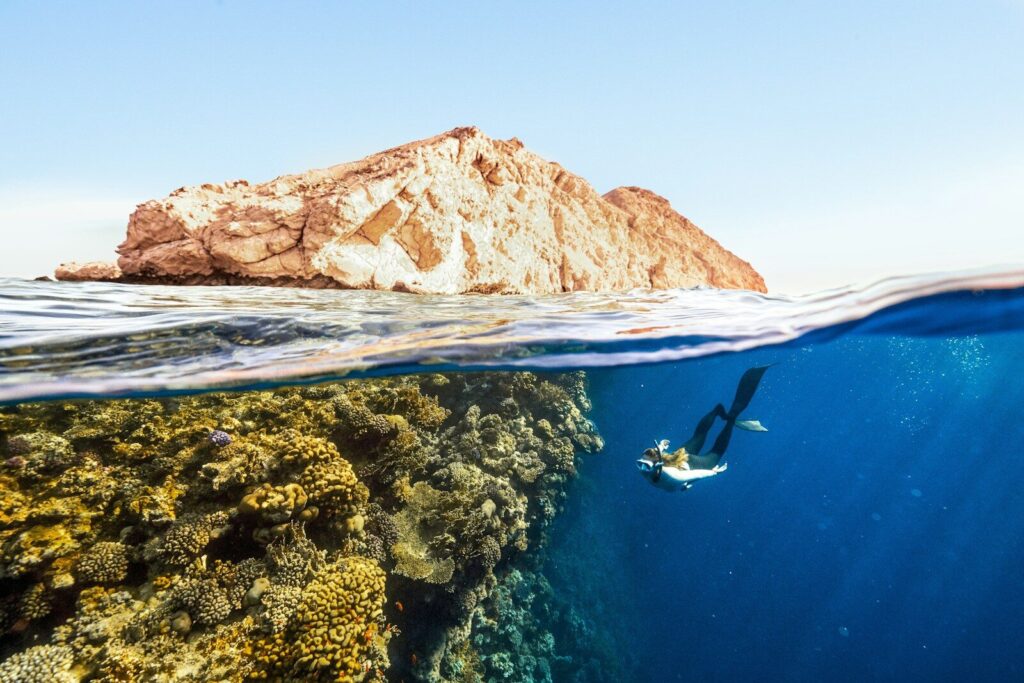Unraveling the Impact of Marine Heatwaves: From Altered Ecosystems to Fisheries Collapse
Published on February 20, 2026 by Dr. Ahmad Mahmood

Introduction
The impact of marine heatwaves is rapidly reshaping ocean ecosystems, fisheries, and coastal economies. These prolonged periods of unusually high sea surface temperatures are becoming more frequent and intense due to climate change. As a result, the impact of marine heatwaves extends far beyond temporary warming — it alters food webs, triggers coral bleaching, disrupts fisheries, and weakens the ocean’s ability to regulate the global climate.
Understanding the impact of marine heatwaves is essential for protecting marine biodiversity and ensuring long-term food security.
What Are Marine Heatwaves?
Marine heatwaves are defined as extended periods — typically five days or longer — when ocean temperatures exceed historical averages for a specific region.
Unlike gradual ocean warming, marine heatwaves represent acute thermal stress events. Therefore, the impact of marine heatwaves can be sudden and severe.
The Science Behind the Impact of Marine Heatwaves
Ocean Heat Accumulation and Climate Forcing
The ocean absorbs more than 90% of excess heat trapped by greenhouse gases. Consequently, baseline ocean temperatures are rising.
When natural climate variability combines with this elevated baseline, extreme temperature spikes occur. This process amplifies the impact of marine heatwaves.
Marine Heatwave Drivers Include:
- Elevated sea surface temperatures
- Persistent high-pressure systems
- Reduced wind mixing
- El Niño events
Because ocean heat content continues to increase, the probability of extreme marine heat events also rises.
Ecological Impact of Marine Heatwaves
Coral Reef Bleaching and Mortality
One of the most visible examples of the impact of marine heatwaves is coral bleaching.
Corals depend on symbiotic algae for energy. When temperatures rise:
- Corals expel algae
- Bleaching occurs
- Prolonged stress can lead to mass mortality
Repeated marine heatwaves reduce recovery time between events, making reef collapse more likely.
Collapse of Kelp Forests
Kelp forests are highly productive coastal ecosystems.
The impact of marine heatwaves on kelp includes:
- Reduced growth rates
- Increased grazing by warm-water species
- Large-scale habitat loss
When kelp forests disappear, biodiversity declines and carbon sequestration potential weakens.
Shifts in Marine Species Distribution
Marine organisms often live near their thermal tolerance limits.
Therefore, the impact of marine heatwaves can include:
- Fish migration toward cooler waters
- Altered predator-prey relationships
- Invasive species expansion
These shifts destabilize entire food webs.
Fisheries and Economic Impact
Impact of Marine Heatwaves on Fisheries
The impact of marine heatwaves on fisheries can be immediate and severe.
Consequences include:
- Reduced fish recruitment
- Changes in spawning cycles
- Collapsing local fisheries
For coastal communities reliant on fishing, marine heatwaves threaten livelihoods and food supply chains.
Small-scale fisheries are particularly vulnerable due to limited adaptive capacity.
Broader Economic Ripple Effects
Beyond fisheries, the impact of marine heatwaves affects:
- Tourism industries dependent on coral reefs
- Aquaculture operations
- Coastal employment
As marine productivity declines, regional economies face mounting instability.
Climate Feedback Loops
The impact of marine heatwaves also influences the climate system itself.
Warmer oceans:
- Absorb less carbon dioxide
- Reduce biological carbon sequestration
- Alter ocean circulation patterns
These feedback mechanisms may accelerate global warming.
Case Studies Demonstrating the Impact of Marine Heatwaves
The Northeast Pacific “Blob”
Between 2013 and 2016, a prolonged marine heatwave disrupted marine ecosystems across the Pacific.
Impacts included:
- Mass seabird mortality
- Harmful algal blooms
- Fisheries disruption
This event highlighted the systemic impact of marine heatwaves.
Great Barrier Reef Bleaching Events
Repeated marine heatwaves have triggered widespread coral bleaching across the Great Barrier Reef since 2016.
The cumulative impact of marine heatwaves has reduced reef resilience significantly.
Long-Term Ecological Consequences
If marine heatwaves continue intensifying, long-term outcomes may include:
- Permanent species redistribution
- Reduced marine biodiversity
- Declining ecosystem productivity
- Altered ocean biogeochemical cycles
The impact of marine heatwaves may shift entire marine ecosystems into new, less productive states.
Solutions and Adaptation Strategies
Reducing Greenhouse Gas Emissions
Because climate change increases marine heatwave frequency, emissions reduction remains the most effective long-term solution.
Strengthening Marine Protected Areas
Protected areas reduce local stressors such as overfishing and pollution. Consequently, ecosystems may better withstand the impact of marine heatwaves.
Adaptive Fisheries Management
Dynamic management strategies can:
- Adjust catch limits
- Protect spawning grounds
- Monitor species shifts
Such measures reduce vulnerability.
Frequently Asked Questions
Why are marine heatwaves increasing?
They are increasing due to rising ocean temperatures driven by greenhouse gas emissions combined with natural climate variability.
How does the impact of marine heatwaves differ from gradual warming?
Marine heatwaves are short-term extreme events, causing rapid ecosystem disruption, whereas gradual warming occurs over decades.
Can ecosystems recover?
Some ecosystems can recover if heatwaves are infrequent. However, repeated events reduce resilience and increase collapse risk.
Conclusion
The impact of marine heatwaves extends from coral reefs and kelp forests to global fisheries and climate systems. As ocean temperatures continue rising, these extreme events are becoming more frequent, longer-lasting, and more destructive.
Protecting marine ecosystems requires coordinated climate mitigation, adaptive management, and strong conservation policies.
Call to Action:
Support climate action initiatives, reduce personal carbon footprints, and advocate for marine conservation policies to minimize the long-term impact of marine heatwaves.